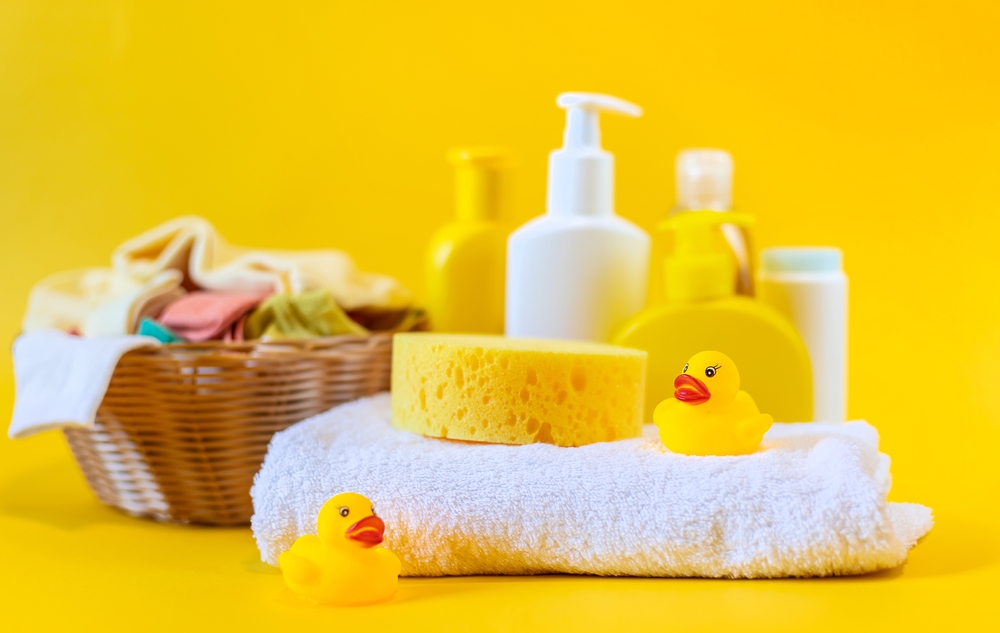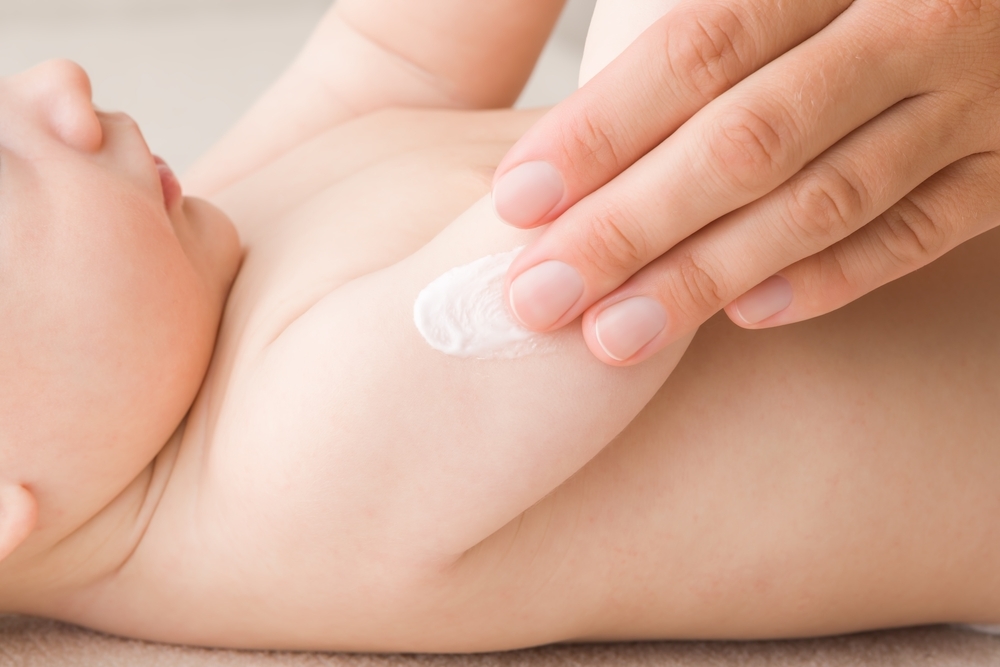Natural baby care is more than just a wellness trend—it’s a parenting decision rooted in love, safety, and science. With your baby’s skin being thinner and more absorbent than yours, it’s essential to choose products that protect and nourish using only gentle, natural ingredients.

1. Natural Baby Care: Why It Matters More Than Ever
Natural baby care is more than just a buzzword. In 2025, with rising concerns over toxins, allergies, and skin sensitivities, parents are turning to gentle ingredients and organic baby products to ensure safety and wellness from day one.
A newborn’s skin is 30% thinner than an adult’s, making it more permeable and vulnerable to synthetic chemicals. Products that are too harsh can lead to rashes, dryness, and even long-term health effects.
👶 Your baby’s skin is absorbing what you put on it—choose wisely.
2. The Problem with Conventional Products
Many traditional baby products still contain potentially harmful ingredients, even in 2025. These may include:
- Parabens – Linked to hormone disruption
- Phthalates – Found in synthetic fragrances, may affect development
- Sulfates (SLS/SLES) – Can irritate delicate skin
- Synthetic dyes and perfumes – Common allergens
- Formaldehyde-releasing agents – Sometimes hidden in preservatives
Even “trusted” baby product labels may hide these under generic terms like fragrance or preservative blend.
3. Safe & Gentle Ingredients You Can Trust
When it comes to natural baby care, here are the ingredients you should look for on product labels:
| Ingredient | Why It’s Great for Babies |
|---|---|
| Aloe Vera | Soothes inflammation and hydrates skin |
| Coconut Oil | Deep moisturization with anti-bacterial properties |
| Chamomile | Natural calming effect, reduces redness |
| Calendula | Speeds up healing of diaper rashes |
| Shea Butter | Rich in vitamins A & E for barrier protection |
🌱 Natural ingredients work with your baby’s skin—not against it.
4. Real Results: Natural vs. Synthetic Case Studies
Case Study 1:
A mother switched from a mainstream lotion to an organic calendula balm. Result? Diaper rash cleared in 48 hours, and no recurrence for weeks.
Case Study 2:
Synthetic shampoo led to flaky scalp and dryness. Upon switching to a plant-based coconut shampoo, the baby’s scalp remained moisturized and healthy.
These examples prove that natural baby care isn’t just safer—it performs better.

5. Trusted Natural Baby Brands in 2025
Not sure where to start? These brands are leading the charge in organic baby products:
- Earth Mama Organics – Clean ingredients, clinically tested
- Pipette – Uses sugarcane-derived squalane for hydration
- Weleda Baby – Trusted in Europe for decades
- The Honest Company – Transparent, ethical sourcing
- Mustela Organic Line – Dermatologist-approved and EWG-rated
Always look for certifications like USDA Organic, EWG Verified, or COSMOS Certified to ensure authenticity.
6. How to Transition to Natural Baby Products
Shifting to natural baby care doesn’t mean throwing everything out overnight. Here’s how to make a smooth transition:
- ✅ Replace one product at a time (e.g., start with baby lotion)
- ✅ Read ingredient labels carefully—look beyond marketing claims
- ✅ Monitor your baby’s skin reactions with each change
- ✅ Avoid products with vague labels like “natural fragrance” or “clean formula”
A slow, conscious switch is easier on your baby—and your budget.
7. Final Thoughts: Make the Natural Choice
Choosing natural baby care means choosing peace of mind. With fewer risks, more nourishment, and growing availability of organic baby products, there’s no better time to commit to a gentler, more thoughtful approach.
Your baby deserves purity. You deserve clarity. Let natural ingredients guide the way.
💚 Because nothing unnatural belongs on your baby’s skin.




